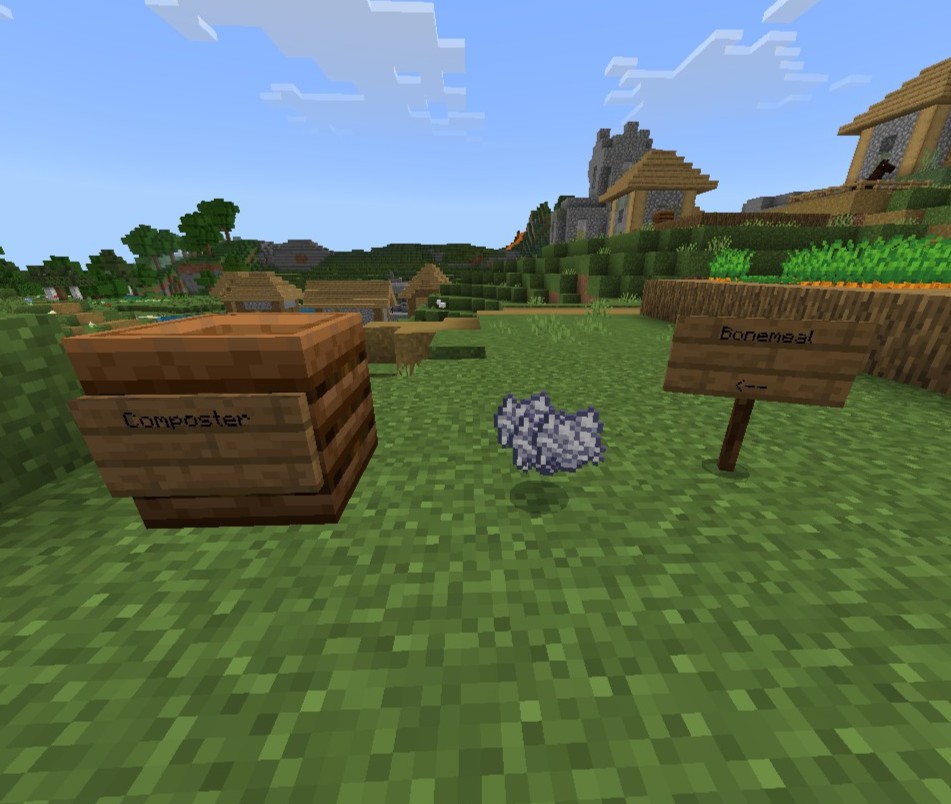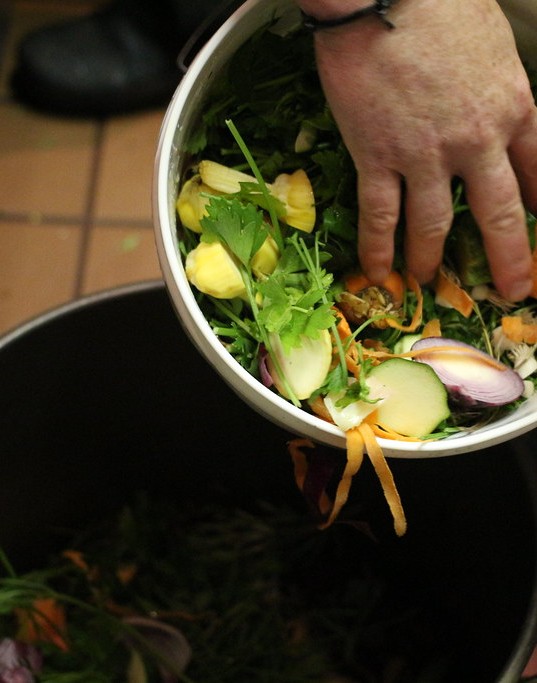Examples
To better understand how fertilizer helps us, we can use real-world examples!
One example to help us better understand how fertilizer helps us is with the videogame, Minecraft. In Minecraft, bone meal, harvested from composters, can be used as fertilizers to do various things. Its main use is to grow crops faster. However, it can be used to grow wheat, carrots, potatoes, and more, along with things like grass and flowers, just like real fertilizer!

This video shows things being composted, then compost being used to farm, and to grow different things!
Going back to how bone meal is harvested, players can put food items and seeds into a composter, and once there is enough compost, it turns into bone meal.
Believe it or not, this relates to real life. Composting can be a great way to make fertilizer from food scraps and many other things you might think to just throw away. These can be used in backyards, cities, and farms to help grow a multitude of things. This idea that can reduce waste connects to UN goal 12, Responsible Consumption and Production.
A DIY example of using fertilizer is with compost!
Try this at home:
1. Choose a Compost Bin: Use a small, ventilated bin or a composting system
2. Add Browns, like shredded paper, cardboard, and dried leaves and Greens, like fruit & veggie scraps, coffee grounds, and tea bags.
3. Maintain Moisture: Keep the compost damp, like a wrung out sponge. If too wet, add more browns; if too dry, add greens.
4. Aerate Regularly: Stir the compost occasionally to help decomposition.
5. Harvest the finished compost: When the compost turns dark, crumbly, and earthy-smelling, collect it.
6. You now have compost fertilizer! Along with reducing waste, you now have fertilizer that can help plants grow, make soil healthier, and more!

Credit: Indiana Public Media - CC BY-NC 2.0
Now that we have seen two examples to help us understand how fertilizer can help us, we can see that in both video games, like Minecraft, and in real life, composting and fertilizing play a crucial role in promoting growth, reducing waste, and supporting Sustainable Development Goals!